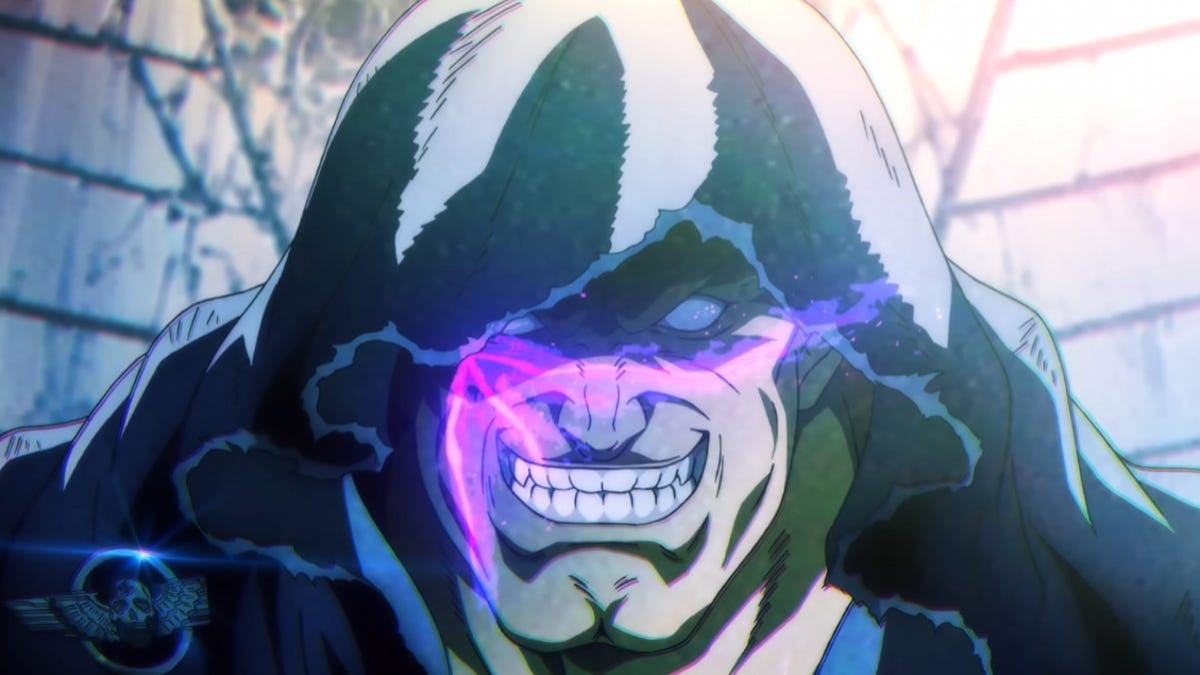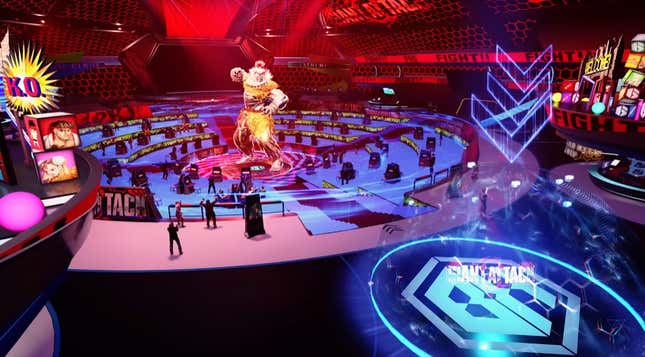Tech
Street Fighter VI Devs Talk About Monetization, M. Bison, And The Series’ First-Ever Guest Fighter

It’s hard to believe that the most famous franchise in fighting game history has never had a guest character before. God of War’s Kratos has been in Mortal Kombat. Yoda was in Soul Calibur. Super Smash Bros. Ultimate’s roster is now home to more characters from outside the series than from within it. But Fatal Fury’s upbeat denim-clad, city-slicker Terry Bogard (who is also in Smash) will mark the first time someone from another franchise has been playable inside Street Fighter.
The news was announced at the Summer Game Fest showcase as part of Street Fighter VI’s season 2 reveal. In addition to the return of Street Fighter III’s Elena and series villain M. Bison, the game’s second year will also see Terry Bogart and the ninja Mai Shiranui join as well, the result of a collaboration with SNK that first got underway at back at Evo 2022, the fighting game event’s in-person return following the covid-19 pandemic. Fighting game illustrators Toshiaki “ Shinkiro” Mori and Eisuke Ogura created a crossover “welcome back” sign made up of characters from both Street Fighter and Fatal Fury.
“It was a big hit and it was really exciting,” Street Fighter 6 director, Takayuki Nakayama, and producer, Shuhei Matsumoto, who are now the faces of the franchise, told me in an interview at Summer Game Fest conducted via a translator. Teams from both companies kept talking in the years that followed and it eventually culminated in the decision to bring Terry, essentially SNK’s Ken, to the rival franchise. What’s it like remaking an outside character inside the Street Fighter universe?
“When incorporating non-Capcom or non-Street Fighter guest characters into this game, obviously [we] have to respect the IP and the characters and make sure that fans of those characters will appreciate it,” they said. While Terry and Mai will follow the same rules as the existing roster, the whole point of the collaboration in the first place is to also bring along their unique personalities and fighting game flair.
Nakayama and Matsumoto demurred when I asked for specifics of what that might mean for their styles and move-sets, but stressed the team has some ideas it’s excited about. “Fatal Fury is a long running series for SNK. Characters like Terry also appeared in other games like King of Fighters, which is also a very long running series. The team who work on Street Fighter 6 are all big fans of fighting games in general, including games like Fatal Fury and King of Fighters. They have a lot of things that they want to incorporate, that people, that they think, that fans of Terry and Mai will like, and that’s something that they’re really putting a lot of energy into.”
But before Terry and Mai arrive later in the year, players will get their hands on M. Bison, the crime syndicate boss who’s been a fan-favorite since Street Fighter II. Ryu killed him at the end of Street Fighter V, but as everyone suspected he’s back and looking weirder than ever. His new grizzled, tattered alt costume, a striking contrast with his traditional imperial uniform, has earned him the nickname “homeless Bison” from some, and a revamped arsenal of moves looks borderline broken.
“In terms of his story and why he looks this way, this is something that you’ll get to learn more [about] when you play arcade mode and see him in World Tour when he’s out,” Nakayama and Matsumoto said. While it’s his comeback to the series, M. Bison’s new kit also marks the return of some old abilities in new forms. One of those is his ultra combo from Street Fighter IV which is now a super art in Street Fighter 6. Other moves play off the story and the crime boss’ new level of deviousness. That includes a back fist combo which plants a psycho mine on the opponent that explodes if M. Bison doesn’t get hit for a while.
“It kind of adds this mind game-type aspect to his gameplay, and kind of forces the opponent to play in a certain way when that happens,” they said. The psycho mine also changes some of the effects and combos of M. Bison’s attacks while it’s active, changing the rhythm of the match as well. He’s also a hybrid charge and command input fighter, meaning some of his abilities require holding inputs while others are just simple sequences. His iconic Double Knee Press attack will now just be a “fireball motion” attack, for example, potentially making him a lot more appealing to more players.
It’s poised to be another neat addition to a game that still feels like it’s in a honeymoon phase with fans. Following the disappointing launch of Street Fighter V, which was marred by numerous complaints and incomplete modes, Street Fighter 6 was a return to form for both the fundamentals and positive mood among fans. Despite being a fighting game rooted in a rich history of arcades and in-person competition, modern Street Fighter is as much a live-service platform as anything else. In May, Akuma arrived in the game by way of an event that was part Twitch Plays Pokémon and part MMO boss fight.
Nakayama and Matsumoto pointed to all of the data they collect from players and the new ways they’re experimenting with online events to help the game evolve. ”We released this infographic that shows something like 20 billion matches that have happened over this past year, which is very surprising,” they said. “When we did the raid boss event with Akuma in the battle hub that was a big hit. That just made [us] realize there should be more opportunities to get people excited about events like that, that’s something [we] want to explore in the near future.”
When they told me it’s easier than ever to see what players do and don’t like, I asked them if it ever felt like there was too much data and they wished they could go back to days when developers were more walled off from community feedback and behavior. “Honestly, not really,” they said laughing. “It’s really exciting to see everyone really have fun and play the game and seeing what what people are interested in.”
One thing at least some players still aren’t always having fun with is Street Fighter’s aggressive microtransaction model. Every once in a while outrage bubbles up when Capcom asks players to pay for something they feel is particularly egregious, like color variants for costumes. There’s also no way to pay exact amounts for lots of the in-game purchases since players first have to buy arbitrary amounts of Fighter Coins that often leave them with left-over premium currency. Is the team happy with the current monetization?

“I mean people seem to be very interested in purchasable content especially that associates with the actual characters in the Fighting Ground Mode,” they said. “And we see a lot of interest towards that so it’s something that we will continue looking into and seeing if there’s any new stuff that we can just…but in terms of the system it’s probably going to be as is.”
Reading between the lines, it certainly seems like a version of what you hear from a lot of companies,which is that while lots of people complain about microtransactions, just as many if not more, grudgingly or even happily pony up the money for them. Perhaps the sea of player data the Street Fighter 6 devs have access to was also helpful in bearing that out.
Despite containing just four new characters, the season 2 fighter pass is $30, half the price of the full game. But to sweeten the deal, the full game is currently 50 percent off to celebrate its one-year anniversary. M. Bison, meanwhile, arrives over the summer. But the most important part of Street Fighter 6’s legacy, and its potential future, may lie in more community experiments like the Akuma online event.
“Street Fighter 6 gave [us] an opportunity to try out a lot of new things that [we’d] never done before in any other fighting game,” Nakayama and Matsumoto said. “With Street Fighter 6 [we] feel like [we] were able to see a resurgence of younger audiences who became interested in the game through alternate areas outside of just the fighting.” Hopefully that means more live events are planned for year two. The social experience of arcades was central to how many people fell in love with fighting games to begin with. Finding more ways to recreate that online could be the key to maintaining them.




.jpg)




